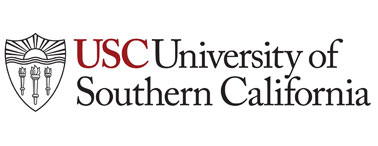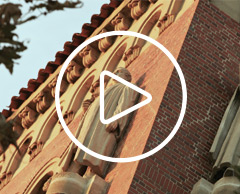Special Circumstances & Appeals
If you have special circumstances not fully explained by your FAFSA, your federal tax returns, or other documents submitted to the Financial Aid Office, you may be able to request a re-evaluation of your financial aid eligibility.
Submit your request, along with copies of appropriate supporting documentation as indicated, through the Required Info and Forms page of your FAST account. Make sure your USC ID number appears on each supporting document. You will be contacted if additional documentation is required.
When considering your appeal, the Financial Aid Office takes into account the availability of funds, the timeliness of your original application for financial aid, the timeliness of your appeal, and the nature of the change in your circumstances.
Re-evaluation of your financial aid eligibility is subject to federal, state and university regulations. Approved appeals can be funded only if you are eligible for additional student loans.
We urge you to carefully consider your total loan debt before borrowing additional loan funds.
Residency Interview Expenses for Fourth-Year Medical Students
In some cases, if you are a fourth-year medical student applying to residency programs, we can increase your budget to accommodate your residency program application and travel expenses for your interviews (reasonable airfare, ground transportation and hotel accommodations).
Please submit documentation verifying the location of residency program interviews, projected date of interviews, and an itinerary with estimated costs for your travel and hotel accommodations.
Please note that we can increase your budget for up to 12 interviews for residency only.
Rent Costs in Excess of Standard Budget
If you pay more rent than is specified in the standard budget, submit a copy of your current lease agreement and copies of cancelled checks (front and back) or money orders verifying payment of rent. (Cash receipts are not accepted.) Your budget may be increased if your rent level is deemed to be reasonable despite exceeding the standard budget.
Extra Tuition Costs or Fees
If you incur additional tuition costs or fees not included in the standard budget, submit a letter itemizing your expenses.
Course-Related Expenses
If you incur course-related costs not included in the standard budget, submit a request itemizing your additional expenses, along with receipts and a memo from your academic department supporting your request.
Disability-Related Expenses
If you incur expenses related to a disability during the academic year, and those expenses are not covered by other sources of funding, you must be registered with the USC Office of Student Accessibility Services. Submit receipts to verify your disability-related expenses and a letter supporting your request.
Child Care Expenses
If attending USC causes you to incur child care expenses for dependents 12 years old or younger, you must submit the following documentation:
Letter identifying child's name and age as well as the name of the child-care provider and days/hours that child care is provided.
A copy of the contract verifying child care expenses.
A Student Income & Expense Form.
Copies of cancelled checks or receipts to verify expenses.
Mandatory USC Student Health Insurance
A standard amount for Student Health Insurance for students in the medical and physician assistant programs is already included in the standard budget. If you are not already covered by health insurance, or if you were unable to obtain a waiver for USC Student Health Insurance, you can submit a request for a budget increase, with appropriate documentation, for insurance fees in excess of the standard budget.
Medical/Dental Expenses Not Covered by Insurance
For medical or dental expenses incurred during the period of enrollment, you must submit the following documentation:
Itemization of expenses incurred.
Statements, receipts, or other documentation from the provider to show the amount of expense covered by insurance.
A letter from the student's primary care physician or specialist verifying that the treatment is medically necessary for the student to attend school.



